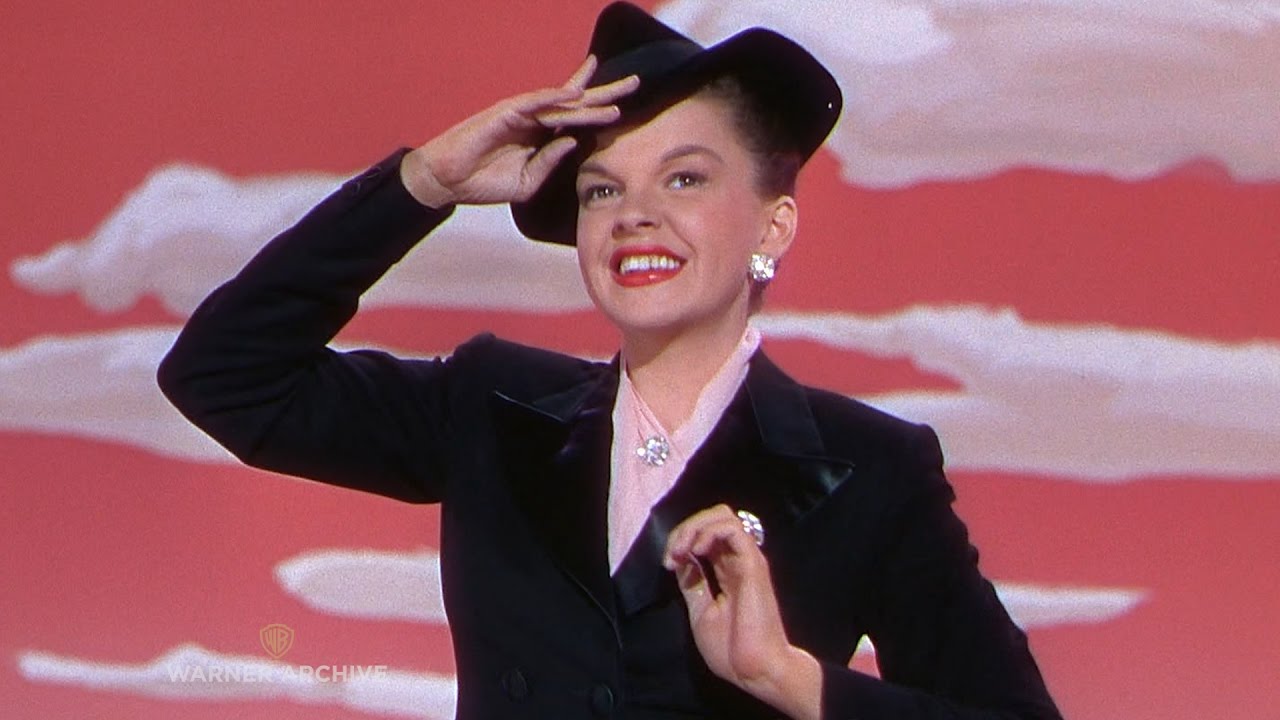by Chris Feil

Forget Disney+, this month we have Judy+. For those of you not already subscribers to the streaming platform, The Criterion Channel has (in addition to a slew of other old studio musicals) added seven classic Judy Garland musicals to the platform for the month of November. Spanning a decade of Garland’s film career, it’s a treat from more famous titles like Meet Me In St. Louis to other oddities such as The Pirate. To entice you to binge as I did, let's run down one of Judy's songs from each of the films available...
For Me and My Gal - 1942 - "For Me and My Gal"
Sometimes we forget the times in which Judy was able to play tougher ingenues instead of her more famous delicate ones. Here she is initially gruff to Gene Kelly before indulging his notions of the two starting an act together, stumbling into this title song and getting caught in the feeling. One of her most remarkable gifts was her incredible emotional access that could take us on the journey with her character. This isn’t just a showstopping song and dance; part of the joy we feel is us witnessing her fall in love in real time.
Meet Me in St. Louis - 1944 - "The Boy Next Door"
We’ve already gone at length here on Soundtracking about this masterpiece, one of the songs we didn’t really discuss is “The Boy Next Door”. It’s the quintessential second-song-in-a-musical “I want” song, striking in its youthful ease when you compare it to the maturing broken heart of Garland’s “Have Yourself A Merry Little Christmas” later in the film. As Esther, Garland plays a really subtle emotional arc and it begins with this sense of uncomplicated longing.
The Harvey Girls - 1946 - "On the Atchison, Topeka, and the Santa Fe"
The Harvey Girls feels, especially in its many large ensemble numbers, like a star vehicle where the star might have been there for half of the filming. This Oscar winning ensemble number is one of the many sequences that keep her out of sight - but it saves her however for the big finish. In a way, it feels all the more reverential to the size of her talent: surrounded by a horde delivering a pristine classic song, but she’s the big finish, the main event.
Easter Parade - 1948 - "I Want to Go Back to Michigan"
Perhaps it was Dorothy’s Kansan afterglow, but there was something about Garland’s open-hearted aura that always had her playing midwesterners. This number puts her in something of a midwestern anthem - well, certainly if you’re a Michiganite. But that homegrown naivete that she had always projected was starting to morph into a weariness of flashier worlds at this point in her career, intentional or not. “...Michigan” may be upbeat, but her showgirl reads ever so slightly as bruised before Fred Astaire attempts to polish her up.
The Pirate - 1948 - "Mack the Black"
The Pirate is one of those old studio musicals that is not-so-secretly bonkers. Here in this number, Garland plays the heroine Manuela (oh, it’s also one of those musicals that goes heavy on the cultural appropriation) sings “Mack the Black” while being... hypnotized and/or possessed. The musical numbers in this Vicente Minnelli film feel more like diversions away from the very silly plot, but what is most notable about Garland here is how she proves she had the magnetism to pull that distraction off. She’s obviously a delight but this movie is cuckoo.
In the Good Old Summertime - 1949 - “I Don’t Care”
Speaking of songs that side step the plot for the sake of a brassy musical number. Excluding St. Louis, this may be Judy's single greatest vocal on the Criterion Channel lineup, all brassy chutzpah to make this an athem for fed up people everywhere. This number also feels closer to Garland's noteworthy blunt wit that would accompany her performances once she left the role of the ingenue.
Summer Stock - 1950 - “Get Happy”
The utter visual iconography and essentialness to the Judy Garland songbook! Summer Stock was to be Garland's final musical with MGM after turmoil behind the scenes, but she really went out with a bang. "Get Happy" would become one of the most revamped and revisited songs in her repertoire, but this trademark version presents the legend as an icon of song, dance, and especially style in a way that still inspires. Perhaps it's the trite thing to say, but watching it, it's impossible to not get happy as intructed.
All Soundtracking installments can be found here!